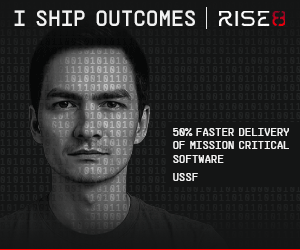By 2025, Mark Maybury, the Air Force’s chief scientist, hopes to see a cyber elite amongst airmen. He previewed Cyber Vision 2025, the Air Force’s long-range strategy to maintain cyber superiority, at an AFA-sponsored Air Force breakfast program speech on July 17 in Arlington, Va. The service’s cyber vision is a bold, challenging, and essential objective, and will require the Air Force to recruit young talent, said Maybury. “Passion about any subject is as important as innate talent,” he said. “It’s not sufficient, but it’s important.” He added that young people can be excited about the Air Force’s vision, citing AFA’s successful CyberPatriot program. In the United States, math scores are declining as cyber expertise becomes increasingly important. “We have not found a mission today that is not dependent on cyber,” he said. “That’s an important statement.” International trends in education have weighty implications for America’s economy and future security, he said. By 2025, Chinese universities will produce more than twice as many doctoral students as American universities, said Maybury.
The advanced F-47 sixth-generation fighter remains on track to fly in the next two years, the senior Air Force acquisition officer overseeing the program said Feb. 25, as the service continues on its ambitious schedule to debut the air superiority-focused fighter by 2028—only three years after the contract was awarded…




